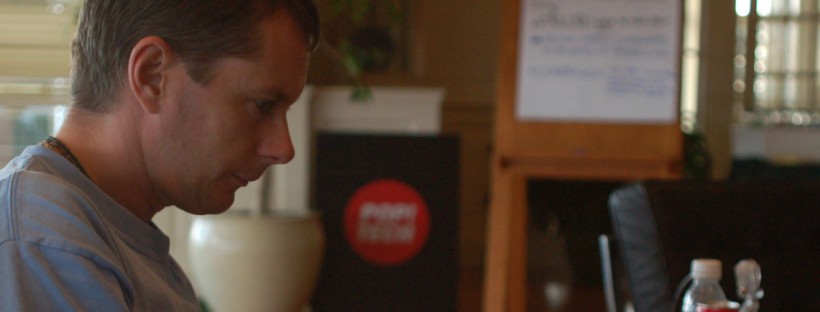You’re hungry. We enter a small cafe. The menu looks normal enough. But this is no normal cafe. It’s one of those “eat all you like” set ups, but with a difference. The portions are tiny, only one food item is available, and I have to repeatedly answer questions before you can take a mouthful. Sound fun? Well, I guess it could be if your life didn’t depend on it. For many other people, it may.
If this sounds like fantasy to you, or a great idea, or a crazy one, then you may like to know that this very game is being played around the world by thousands of people. Right now.
 I can’t quite describe my reaction when I first heard about “FreeRice”, a website which helps people master the English language while they earn grains of rice to feed starving people around the world. Sure, there’s a real need to engage ordinary citizens – and educate people – in some of the most pressing issues of our time, and hunger is without doubt high among them. But does ‘blending’ it with an English language quiz really do anybody any justice?
I can’t quite describe my reaction when I first heard about “FreeRice”, a website which helps people master the English language while they earn grains of rice to feed starving people around the world. Sure, there’s a real need to engage ordinary citizens – and educate people – in some of the most pressing issues of our time, and hunger is without doubt high among them. But does ‘blending’ it with an English language quiz really do anybody any justice?
Our planet is full of extremes. Take this one. There are nearly 800 million people in the world who go hungry every day. And then there are another 800 million diagnosed as clinically obese. “It’s the ultimate contradiction and two sides of the same problem” says US academic and former World Bank employee, Raj Patel, in his latest book “Stuffed and Starved”.
The “FreeRice” site interestingly pitches itself more as an English language aid than a place of compassionate, charitable giving. Why do I say that? Well, when I went to the Frequently Asked Questions (FAQ) section, I was really interested in the whole concept of ‘earning’ rice for hungry people. This, after all, is what the name of the site encourages. It’s “FreeRice”, right, and not “FreeLanguageQuiz”? But no. The first five answers on the FAQ page all talk about how much better your chances of getting a job might be, or how your reading and writing could be dramatically improved, if you master your English vocabulary. The fact that you happen to feed people as you go – twenty grains of rice at a time, by the way – isn’t seen as quite so important. Rice only enters the equation at “Frequently asked question” number six.
It’s a huge challenge engaging ordinary members of the public in development issues. With so many charities in desperate need of funding, anything which stands out has the greatest chance of success. This is one of the reasons Comic Relief in the UK is so successful. Not only does it give something back – in the way of a great night of comedy on the BBC – but it also takes people on a gut-wrenching rollercoaster ride through images of absolute suffering and despair, intermingled with comedy clips and top-quality family entertainment. The contradiction is almost as powerful as the 800 million people sitting on each side of that ‘hunger line’.
 Giving out free rice also has its own problems, as does seeing famine and hunger as purely a food distribution issue. Studies have shown that most recent famines have more to do with war and politics than a plain shortage of food. In an effort to reduce the damage that dumping food has on local economies, CARE International recently took the brave step of refusing food aid from donors. Similarly, a DFID project in Malawi recently started an interesting experiment, handing out money to villagers in Malawi rather than handing out food (see an earlier posting).
Giving out free rice also has its own problems, as does seeing famine and hunger as purely a food distribution issue. Studies have shown that most recent famines have more to do with war and politics than a plain shortage of food. In an effort to reduce the damage that dumping food has on local economies, CARE International recently took the brave step of refusing food aid from donors. Similarly, a DFID project in Malawi recently started an interesting experiment, handing out money to villagers in Malawi rather than handing out food (see an earlier posting).
My reaction to “FreeRice” was a mixed one. Whilst it does bring wider attention to global hunger it does it in a way which, to me anyway, seriously trivialises the issue. Answering questions and seeing a little bowl fill with rice which fundamentally decides if someone will eat or not gives me – and excuse the comparison – a rather sick feeling in my stomach.
Of course, it’s easy for us to sit here and openly criticise, praise, unpick or condemn these types of initiative. The people you’d have to really ask would be those whose bellies have been filled by the near-four billion grains of rice donated so far. They’d be able to tell you if they really cared where it came from, or how it got there.
The right answer? Maybe. Maybe not. I’ll need to pass on that one. Ask me another?





